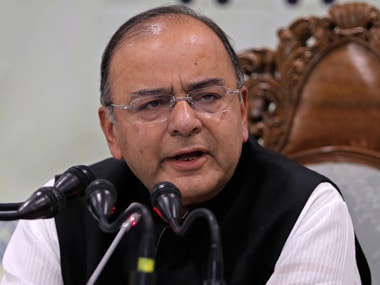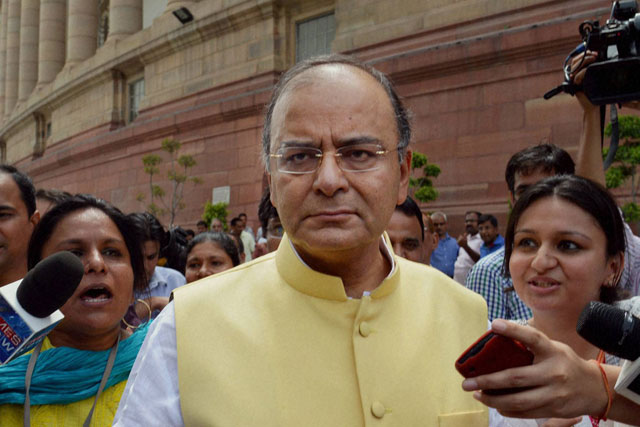There is an apocryphal story about high profile lawyer politicians that often does the rounds. That when one set gets into the government they had over their cases to the ones in the opposition and when the latter come into government, their cases go to those who have taken their place.
Finance minister Arun Jaitley’s maiden budget speech sounded very much like something P Chidambaram handed over to him, barring some changes in numbers and some high-sounding ideas.
When weeks ahead of the budget, Prime Minister Narendra Modi told the nation that people will have to brace for tough measures, it was widely seen as a signal of a directional shift in economic management and a junking of the populism that marked the UPA budgets. The very sensible railway budget - and the hiking of rail fares ahead of that - also raised hopes that the budget would shun a please-all approach.
As Jaitley started his two-hour long speech, it appeared that these hopes would be fulfilled. He asked, “Should we allow this drift to carry on and watch helplessly? Should we allow our future to suffer because of our indecisiveness? Should we be victims of mere populism or wasteful expenditure?”
[caption id=“attachment_90500” align=“alignleft” width=“380”]
 Did Jaitley miss his chance to genuinely reform subsidies? Reuters image.[/caption]
Did Jaitley miss his chance to genuinely reform subsidies? Reuters image.[/caption]
But this was not answered with a categorical no. Nor did the rest of the speech give a sense that this is the approach that the government would follow. This budget is a missed opportunity.
There were two big expectations of this budget - a major attempt at expenditure reform and a signal of a shift to a more open economy. Jaitley hasn’t gone the whole hog in fulfilling these.
A major overhaul of the subsidy regime was needed. But merely saying that the government proposes to “overhaul the subsidy regime, including food and petroleum subsidies, and make it more targeted while providing full protection to the marginalized, poor and SC/STs” doesn’t mean anything. Every finance minister since Yashwant Sinha way back in 1990 has been saying this, but nobody has done anything about it. It is a tame statement, not expected from what is widely touted as a decisive government.
The subsidy bill is slated to grow only 2 per cent, mainly because of a higher fertiliser subsidy bill. Jaitley has kept the food and petroleum subsidies at the same level as the interim budget presented by Chidambaram did in the interim budget. But no public finance expert believes that figure of Rs 1,15,000 crore to be realistic. The Food Security Act has not rolled out and that is expected to push up the cost of food subsidy greatly.
Announcing the setting up of an Expenditure Management Commission also does not mean much. An Expenditure Reforms Commission headed by former finance secretary KP Geethakrishnan gave its report to the previous NDA government; nothing came of it.
Jaitley plans to stick to Chidambaram’s fiscal deficit target of 4.1 per cent. How? Can tax revenues grow 16 per cent in a 5.4-5.9 per cent growth scenario, despite the many industry-friendly features in the budget? A lot of reliance seems to have been placed on disinvestment, which is expected to bring in Rs 63,425 crore. But Jaitley has said nothing about an aggressive disinvestment programme in his budget speech, except for the sale of public sector bank shares to the retail investor. Can such a huge figure be achieved without strategic sales?
Yes, the budget had several positives - the massive push on the infrastructure front, good initiatives on agriculture (again focussing on infrastructure), trying to give a fillip to the savings rate by a combination of income tax relief and a push to small savings.
But it did not signal a directional shift in economic management that the country sorely needs. There were no announcements on a roadmap for subsidy reform (something that is sorely needed), on disinvestment and privatisation, on signalling a change in the way the food economy is managed. Sure some of these are off-budget items. But Jaitley could have signalled that these reforms were coming. He did not. This budget is also the story of missed opportunities.
Seetha is a senior journalist and author
)